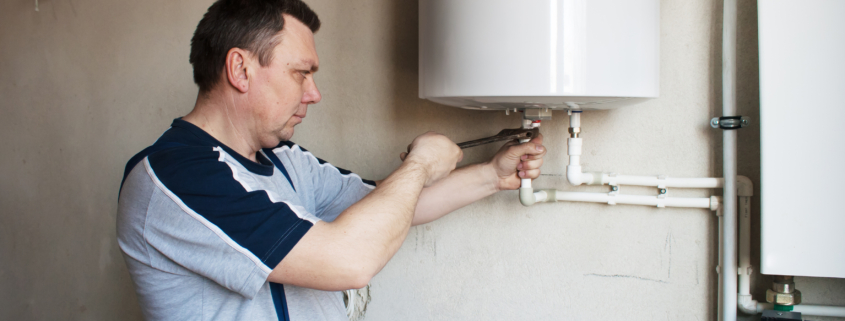How to Choose the Best Hot Water System for Your Home
Choosing the best hot water system for your home can significantly impact both your comfort and energy bills. With various options out there, making the right choice can feel overwhelming. The system you pick needs to fit your lifestyle and the specific needs of your residence, ensuring a reliable supply of hot water when needed. This decision is especially important for residents in Brisbane, where climate conditions can vary. The right system will efficiently meet your home’s hot water demands while also keeping energy use in check.
Brisbane’s unique climate plays a key role in determining which hot water system suits your home best. With hot and humid summers, some systems can work more efficiently than others. When selecting a system, consider how often you might need hot water and how swiftly the system can deliver it during peak usage times. Also, think about energy consumption levels and possible environmental impacts. Homes in Brisbane can benefit from systems designed to handle warm weather efficiently and reduce energy costs.
Understand Your Hot Water Needs
Getting the right hot water system begins with assessing your specific needs. Different households use hot water differently, so it’s crucial to consider a few factors:
– Household Size: How many people live in your home? Larger families typically need systems with greater capacity.
– Usage Patterns: Think about when and how often you use hot water. Do you have peak usage times in the morning or evening?
– Specific Needs: Any specific requirements, such as frequent laundry loads or large bathtub fills, should influence your choice.
To assess your daily hot water consumption:
- Count the number of showers, dishwashing cycles, and laundry loads typically done each day.
- Estimate the amount of hot water used per activity. Showers might use around 50 litres, while dishwashers could use more.
- Add it all up to see your household’s average consumption.
Understanding these factors will help you determine whether a high-capacity system or a more moderate one fits your needs best. Being mindful of these details ensures that the system you choose won’t leave you with cold water at times when you need it most, leading to better planning and satisfaction in everyday use.
Types of Hot Water Systems
Understanding the types of hot water systems available can help you find the perfect match for your home’s needs. Each system has its own unique advantages and drawbacks, so let’s take a closer look:
– Electric Storage: This type of system is quite common and offers a reliable source of hot water. Its pros include easy installation and suitability for small to medium households. However, electricity costs might be a concern for some.
– Gas Storage: A gas system is often more energy-efficient than electric storage. It can quickly heat water, making it ideal for larger families. Yet, if you don’t have a natural gas connection, installation could be a hassle.
– Heat Pump Systems: These systems are known for their energy efficiency. They work by extracting heat from the air to warm the water, which is perfect for warm climates like Brisbane. While the upfront cost can be higher, you may save over time.
– Solar Hot Water: Harnessing the power of the sun, these systems are both eco-friendly and cost-saving. They’re particularly effective in sunny regions. One consideration is the potential high initial cost and reliance on sunny days.
Energy Efficiency and Costs
When selecting a hot water system, energy efficiency and cost are crucial factors. Comparing systems can help in identifying which might offer savings over time.
– Start by comparing the energy usage of the systems. Electric and gas storage systems might have higher operational costs due to higher energy use, while heat pumps and solar systems can reduce bills with lower usage.
– Consider the long-term cost savings of energy-efficient systems. While the investment might be higher initially, especially for heat pumps and solar systems, they often result in lower utility bills in the long run.
– Take advantage of any government rebates and incentives. In Brisbane, these can offset some of the initial costs, making energy-efficient choices more accessible.
Installation and Maintenance Considerations
After choosing a system, professional installation is essential to ensure its efficacy and longevity. Proper installation also helps in avoiding potential safety hazards.
– Professional installation guarantees that your system meets all safety standards, including electrical connections and plumbing requirements.
– Regular maintenance is key to extending your system’s lifespan. Schedule consistent checks to identify any issues early. Keeping the system clean, checking for leaks, and occasionally flushing the tank can go a long way.
– Be aware of signs that might indicate your system needs repair or replacement, like inconsistent water temperatures, unusual noises, or leakage. Addressing these promptly avoids bigger problems.
Secure Comfort with the Right Hot Water System
The right hot water system can make a significant difference in household comfort and efficiency. By considering the types available and focusing on energy efficiency and proper installation, you can make a smart choice that suits your needs.
A well-chosen system not only meets your family’s hot water needs but also aligns with your budget and environmental goals. Expert assistance ensures a seamless transition and continued satisfaction. By staying informed and proactive with maintenance, you’ll enjoy a reliable hot water supply without surprises.
To make sure your hot water system is installed properly and works smoothly year-round, it’s best to work with an experienced electrician for hot water systems. Thomas Blake Electrical can help you choose a setup that matches your home’s needs and works well with Brisbane’s climate, giving you comfort and reliability from day one.


